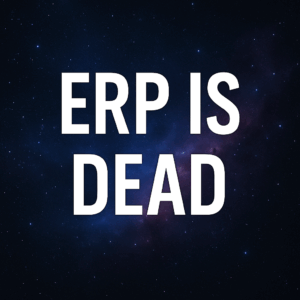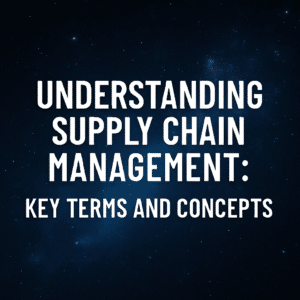What happens when the CEO of a digital transformation consulting firm fails in his own digital transformation?

We here at Third Stage Consulting are independent digital transformation consultants, we help organizations through complex digital transformations every day but when it comes to eating our own cooking or eating our own dog food, I experienced something different than what we advise to our clients.
In fact, our organization made a lot of the same mistakes that we tell our clients not to make. To set the backdrop, this was a relatively simple digital transformation or so I thought. The digital transformation was fairly limited in scope, it was meant to migrate our email server from one provider over to Microsoft. The idea was that we were just going to migrate the back end emails, our Microsoft teams, Sharefile, OneNote and all the apps that we had within our Microsoft Office Suite of products. How hard can it be?
It turns out it was more difficult than I thought and it turns out it created some disruption within our business. This experience is a good reminder that digital transformations are almost always more difficult than you think they’re going to be and there’s some good lessons and takeaways that I want to share with you here today.
Table of Contents
ToggleMore Difficult Than I Thought
The first lesson here is that this digital transformation, for us at Third Stage Consulting, was more difficult than I thought. I thought and I believed that the back end migration of emails in Outlook data, from one hosting provider to another, would have minimal effect on us as users. I was completely wrong, it had significant effects on us as a team in terms of our productivity and ability to plan our days, attend meetings and to keep up with the emails.
Most of the clients we advise are going through more significant digital transformations, they’re ripping out their back-end financial systems, their supply chain systems and their human capital management systems and all the technologies they use to run their entire business. In my mind, I thought this isn’t that, this is different, this is a email migration, it’s a Microsoft Outlook migration, it’s something that happens behind the scenes and should have pretty limited effect on us as end users.
Again, it was more difficult than I thought. There was more impact than I expected and I think that’s a good takeaway especially for those of you that are going going through more complex digital transformations, that is probably going to be a lot more difficult than you think and even the simplest change to a business process or to a technology is probably going to have a lot more impact on people than you think.
The Little Things Matter
I also learned from this digital transformation how much the little things matter. When I say the little things, it’s the little things that you don’t think is really that big of a deal or that it’s a small risk and those small risks suddenly become big risks or there’s so many of these small risks that they add up to one big risk. It’s really important to recognize that these little paper cuts can certainly create a lot of pain through an organization when there’s too many of them. In our case at Third Stage Consulting, because we have fairly vanilla ways that we use Microsoft Outlook, I thought that the impact of the organization would be pretty minimal. This was just more of a back office or a back-end migration of data and applications from one hosting provider to another but it had unintended consequences like Microsoft Teams meeting links no longer working for future meetings that had already been scheduled.
When we were using the old hosting provider, that migration broke those links that had been planned or scheduled on our Outlook calendars, it broke those Microsoft teams links because they pointed to the old hosting provider. That makes total sense in hindsight, it makes you think that you really have to think through all the things that could possibly break and you really want to test your processes and your technologies very thoroughly before you go live or before you make a switch.
The other little thing that is not at all so little and this is actually an area of spirited debate within our organization as we are going through this migration, is that is it enough to have let’s just say 80 percent or 90 percent of your people that are fully productive within a fairly quick amount of time? My answer to that would be no, it’s not good enough, because even if you have 10 or 20 percent of your organization that’s operating at subpar performance or in some cases can’t perform at all or can’t get access to emails or data, that can have a domino effect throughout your organization.
It’s important not to settle for 80% user adoption or 90% user adoption and get as close as you can to 100 percent and get as close as you can to fully understanding, testing and understanding how your business processes and your technologies, roles and responsibilities are going to look in that future state. The more you do and invest in that early on before you go live, the less time and money you’re going to save by having to put out fires after the migration or after the transformation.
Clearly Define Success
The next thing that we learned from this experience is how important it is to clearly define success. My definition for success and the one metric that I shared with our organization and our team that was working on this migration, was that it wouldn’t disrupt our daily business operations and it wouldn’t affect our clients. It didn’t affect our clients in any material or significant way but it did create internal business disruption and certainly a loss of productivity.
While that’s to be expected to some degree, that loss of productivity, you don’t want it to be more significant than it needs to be. We completed our migration over a weekend, it started on a Friday afternoon with the idea being that we’d work through the kinks and have everything completed by Sunday evening, so that by Monday morning, when we return to work in our normal day-to-day operations, we’d be fully functional in our new Microsoft Outlook environment.
At one point during the weekend, I got a victory email from our third party IT provider that said the migration has been successful and I thought, great, we’re done, there weren’t any issues, we can log in and get back to work. This is on a Saturday afternoon, I go to log in and I couldn’t get to my email, the email’s there, it was in the new hosting provider but I couldn’t access it. The question I had for our IT providers was, “do you really think this is a success when the CEO of the company can’t access the data?” They insisted it’s successful, the data is there, we just have to work through the issues on your computer and my point was then the migration is not successful and we’re not done.
My other thought was that if I’m having user adoption issues or user issues in this new environment, I figured with 70 other team members, there had to be at least one, two, five or ten other people that had the same problem. It turns out I was right, there was a handful of people that had significant issues, there was another handful of people that had more minor issues that we eventually worked through.

No News Is Not Good News
I think one thing that’s really important and one thing I would do differently is to be a hundred percent clear and be even more clear than I already tried to be, which was what do you need to do to be successful in the transformation, what risks are you willing to accept and which ones are you not? The old saying that no news is good news does not apply to digital transformations in my opinion. The reason for that is just because someone hasn’t called the help desk and complained about an inability to do their job doesn’t mean that they’re not struggling to do their job.
Another spirited debate we had internally at Third Stage was “we haven’t heard that many complaints from people or we haven’t had that many tickets opened with our it group as it relates to the migration” and my thought was “well if you can’t get to your email and you don’t know who to email to complain or to issue a ticket, then you’re not going to send an email because you can’t access your email in the first place.”
In our case, no news was not good news and I pushed our team on Sunday evening after I experienced my issues, I told our team we have to find a way to communicate with each and every single person on our team to ensure that they have what they need, that they’re fully functional and if they’re not, we can refer them to our IT group and that’s exactly what we did. Granted, I would have liked to have had this be part of our plan going into the migration but we adjusted and adapted and made an 11th Hour decision to make that additional investment to ensure that we had some sort of contact with everyone who might not have been getting our communications otherwise.
This Was My Responsibility
At the end of the day, it would be really easy for me to blame a lot of people other than myself I could blame our third party IT providers, I could blame our own team for not following the directions the way they should have, I could blame the team members that were more involved, working directly with our IT staff but at the end of the day this was my company, this is the company I lead and ultimately it was my responsibility to make sure that we’re doing the things we need to do to be successful. I didn’t do that enough, there was a lot more I could have done and if I could do it again, I would do things a bit differently to ensure that we had a better plan and that we better understood some of these risks that even I didn’t understand.
I think one of the key takeaways here for executives out there is even if you think that this is just an accounting system replacement or some sort of back office system replacement, just a technology lift and shift, no matter how simple you think the technology migration is, I assure you that it is probably a lot more complicated than the digital transformation I’m describing in this article. We had issues, even as small scale as that was and as leaders, there are times when need to micromanage, there’s times we need to dig into the details, roll up our sleeves, ask the tough questions and really fully understand what’s happening with the migration.
The bigger the transformation, the more that’s at risk and the more that’s at stake with your transformation, the more that the statement is true. If you’re a CEO or an executive sponsor or a steering committee team member that thinks you can abdicate responsibility to a project manager or to a system integrator or to a project team to make the project successful, for you, yes they may be very talented, they might be capable but you have to be the one that’s ultimately responsible. It’s your neck that’s going to be on the line if things don’t go well, so that was another big takeaway here is that I took responsibility and I had to take responsibility for the fact that this transformation did not go as well as I’d like.
Thankfully, this wasn’t a big digital transformation, it was a very small scale transformation but it was a micro example of how difficult digital transformations can be and it’s a micro example of lessons we can take away and apply to the most complex, most risky digital transformations that a lot of global organizations go through.
If you are looking to strategize an upcoming transformation or are looking at selecting an ERP system, we would love to give you some insights. Please contact me for more information eric.kimberling@thirdstage-consulting.com





